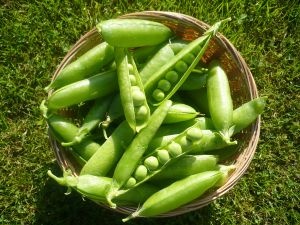 Words like “sustainable,” “eco-friendly,” and “green” have become daily utterances in our vernacular. In a recent issue of Whole Living magazine, they discussed 50 ways to eat sustainably. We took 10 of our favorite suggestions from their list and compiled them into our own.
Words like “sustainable,” “eco-friendly,” and “green” have become daily utterances in our vernacular. In a recent issue of Whole Living magazine, they discussed 50 ways to eat sustainably. We took 10 of our favorite suggestions from their list and compiled them into our own.
Today, eating, living, breathing and doing with a greater mindfulness of how our actions affect not just ourselves, but our community, world and planet has never before been so urgent. And since it is the small actions we do on a daily basis that accumulate to a greater and more long-lasting benefit, the choices you make in your everyday eating and cooking practices can have a profound effect on the health of our bodies and Earth.
Make a commitment to follow one, five or all of these sustainable eating tips and notice the subtle changes in your world:
1. Eat the whole vegetable. Rather than tossing out the stems of broccoli or Swiss chard or the greens attached to beets, eat them. Saute these edible and very nutritious vegetable parts with a bit of olive oil and salt or add them to whatever dish you are making.
2. Turn your basement into a food cellar. This suggestion requires you have a basement, but if you do and it is 40 degrees Fahrenheit or below, clear off one area and designate it as your food cellar. Squashes, potatoes, root vegetables, onions, jars of homemade canned summer peaches or tomatoes will stay perfectly fresh for up to six months.
3. Make friends your farmer. At your farmer’s market, get to know your farmer. Ask them about how they grow their food and their favorite recipe for rutabagas.
4. Check the numbers. At the grocery store, look at the PLU code on produce. Codes that begin with nine are organic.
5. Buy local bread. Eliminate excess packaging and cross-country delivery journeys by purchasing your bread from a local bakery where the bread is made on-site.
6. Nix canned beans. Buy dried beans, like kidney, black and lentils, in bulk and cut down on cost, energy use and packaging.
7. Use the oven efficiently. Ovens require a lot of energy. So the next time you’re baking banana bread, turn the afternoon into a bake fest and make a lasagna, casserole or just simply toss sweet potatoes in the oven along with the bread. You’ll see the difference in your utility bill and your meal-planning just got a lot more efficient.
8. Be picky about meat. Not only should you try to eat less meat, but aim to be an eco-friendly meat-eater. Only buy additive- and antibiotic-free meats, and purchase domestic and seasonal meats when possible.
9. Cook with less toxic cookware. Many pots and pans contain potentially cancer-promoting toxins. Since cooking further unleashes these chemicals, opt for stainless steel, cast-iron or ceramic cookware, which are much safer and more durable.
10. Use cloth instead of paper. Whether you’re keeping bread warm, dusting crumbs off your mouth or wiping up a spilled mess, forgo the paper towels, plastic wrap or aluminum foil and instead use dishtowels.
There are 40 additional sustainability tips. If you want to check out the full list, pick up a copy of Whole Living magazine.
Also Read:
